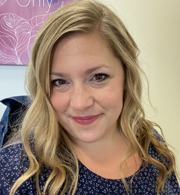
Preventing the Unseen: Transforming School Culture for Lasting Impact
By Jessica Viola | November 2024
 Data is important in any good school counseling program. However, sometimes it’s hard to quantify how prevention impacts our schools. It’s hard to collect data on things that never happen. But prevention still matters. It matters to the student struggling with depression. The one who Googled, “Does it hurt to die?” and no one ever knew. It matters because that kid came to see us to talk about stress and pressure and overwhelm. We listened, before her thoughts became a crisis, as she brought her feelings of worthlessness into the light, and the loneliness and the shame crept back just enough for her to Google “How to talk to my parents about getting therapy,” instead. It matters to the student who learned about the hazards of drugs and alcohol and decided not to hit the vape when it was passed. There are hundreds of examples of things that don’t happen because our efforts help prevent them.
Data is important in any good school counseling program. However, sometimes it’s hard to quantify how prevention impacts our schools. It’s hard to collect data on things that never happen. But prevention still matters. It matters to the student struggling with depression. The one who Googled, “Does it hurt to die?” and no one ever knew. It matters because that kid came to see us to talk about stress and pressure and overwhelm. We listened, before her thoughts became a crisis, as she brought her feelings of worthlessness into the light, and the loneliness and the shame crept back just enough for her to Google “How to talk to my parents about getting therapy,” instead. It matters to the student who learned about the hazards of drugs and alcohol and decided not to hit the vape when it was passed. There are hundreds of examples of things that don’t happen because our efforts help prevent them.Some of the greatest prevention work I do isn’t counseling at all; it’s being part of our climate and culture team. We wanted to start by amplifying student voices, and when we did, we learned they wanted school to be more fun. So we created “Fun Fridays,” which we now offer eight times per year, at midterm and quarter. The students can choose their stations, from options like Just Dance and Craft Room. We also hold student-led pep rallies that recognize student activities, where students play games and learn school-wide cheers. Allowing students to be in front of their peers on the microphone has led to several other student-generated ideas, student-centered practices and a major shift in the overall morale of our building.
Watching their peers take on leadership roles has created a ripple effect among our students. One asked to paint a mural on a wall, one group wanted to write encouraging messages in bathroom stalls, and another student asked to give a speech about acceptance at a school-wide celebration. We now have service days, spirit days, a student-run announcement team, school-wide academic goals and an atmosphere of belonging. Recently, I held a focus group with students that resulted in them starting an inclusivity club. It’s not just a school, it’s their school.
The result of this has been more things that never happened. The number of students I see individually throughout the day has decreased – yes, post-pandemic. Kids aren’t avoiding class as much. Students aren’t apathetic about school. They don’t feel as lonely, they don’t wonder if they matter here.
Changing the school climate isn’t something a counselor can do alone. Building relationships with key players can be one of the best ways to help students. If your building doesn’t have a Climate and Culture Team, it might be worth taking the initiative to form one. If a counselor isn’t part of the team, I’d find a way to get involved. Changing school climates changes kids’ lives. Now I can counsel students and then send them out to an environment that is more inclusive, positive and supportive, which has a lot of implications for their overall mental health. It’s hard to quantify, and yet we have data that demonstrates an increase in test scores and a decrease in discipline. The data helps us tell the story, but as often happens in counseling, the whole is greater than the sum of its parts.
Creating a positive school climate isn't a magic solution for mental health issues or trauma. Prevention requires a multipronged approach. Direct lessons, small groups and individual support will still be necessary regardless of how strong the school culture is. However, considering prevention more globally and directing some energy to school-wide changes can provide a serious return on investment. I hope we can celebrate things that didn’t happen because a school counselor was there.
Jessica Viola is a school counselor at Rochester Junior High School.